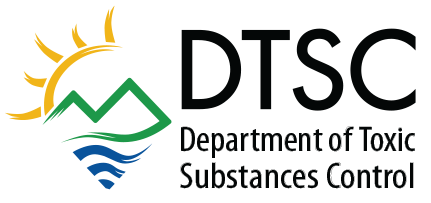News Release
T – 12 – 04
FOR IMMEDIATE RELEASE
March 26, 2004
Contact: Lisa Gray
(916) 324-0936
Ron Baker
(916) 324-3142
DTSC Announces $1,200,000 Settlement With Aerojet
SACRAMENTO – The California Department of Toxic Substances Control (DTSC) today announced a $1,200,000 settlement with Aerojet-General Corporation, Aerojet Fine Chemicals LLC and their parent company GenCorp, Inc. (Aerojet), for a series of hazardous waste violations revealed during DTSC inspections at Aerojet’s Rancho Cordova facility located at U.S. Highway 50 and Aerojet Road near Sacramento.
“This settlement is a demonstration of DTSC’s intent to enforce hazardous waste management laws and bring this facility back into compliance. Repeated violations were revealed during three inspections that spanned three years,” said Ed Lowry, DTSC Director.
The settlement, a Stipulation for Entry of Final Judgment (Judgment), submitted by the California Attorney General on behalf of the DTSC, was filed in the Superior Court of the County of Sacramento. All violations named in the Judgment have been corrected.
Attorney General Bill Lockyer, whose office represented DTSC in the case, said, “This settlement will help protect the environment and public health in the Sacramento community. That is why our hazardous waste laws exist, and this settlement requires Aerojet to comply with those laws.”
Under terms of the settlement signed on March 25, 2004, Aerojet will pay a total of $1,200,000 of which $950,000 is a civil penalty, $50,000 is for reimbursement of costs incurred by DTSC, and $200,000 is to be deposited in the State Environmental Enforcement and Training Account (Training Account).
The Training Account provides a supplemental source of funding for environmental enforcement and training for public prosecutors, peace officers, firefighters, and local and state environmental regulators. The Training Account also supports the Circuit Prosecutors Project, a joint partnership of the California Environmental Protection Agency, the California District Attorneys Association, and the Department of Fish and Game.
The penalty may be reduced by $5,000 if Aerojet employees attend and successfully complete hazardous waste management courses at the California Compliance School (CCS). CCS provides students with “hands-on” instruction on how to comply with hazardous waste statutes and regulations.
The 5,900 acre Aerojet facility is used to manufacture liquid and solid rocket propulsion systems as well as pharmaceuticals for governmental and commercial uses. Currently, site operations consist of industrial and office buildings associated with the testing of rockets, other propulsion systems, and manufacturing chemicals for use in the pharmaceutical industry. Chemicals used at the Aerojet facility include explosives, oxidizers, acids, light metal hydrides, plastics, resins, solvents and other chemical products. Aerojet manages hazardous waste pursuant to a Hazardous Waste Facility Permit issued by DTSC.
During the inspections, DTSC staff reviewed facility operations, administrative documents and other information including California manifests (used to track generation and shipment of hazardous waste), permitting requirements, and hazardous waste management practices (handling, storage, treatment, and disposal). The inspections revealed the following violations:
• October 2000
DTSC inspectors noted 18 violations of Aerojet’s permit including: failure to submit a request for a permit modification prior to instituting modifications on numerous administrative plans as well as physical changes; incorrect packaging of lab packs; cracks and gaps in secondary containment; storage of hazardous waste in an unauthorized area; lack of an eyewash/shower at a hazardous waste unit; and numerous labeling inadequacies.
• June 2002
DTSC inspectors noted 16 violations of the permit including: repeat violations regarding cracks and gaps in secondary containment; labeling problems; incorrect packaging of lab packs; and storage in unauthorized areas. New violations cited during the inspection included failure to minimize the potential for accidental release; inadequately reporting the explosion of a drum; storing incompatible wastes in the same drum; failure to correctly categorize a waste stream; bulging drums, leaking drums and failure to maintain an eyewash/shower.
• June 2003
DTSC inspectors found five violations including: repeat violations regarding cracks and gaps in secondary containment; a labeling problem; and failure to have a working eyewash/shower. New violations cited during the inspection included; reducing a post-closure estimate for underground injection wells without prior DTSC approval and using the wrong inflation calculator to calculate closure and post-closure cost estimates.
# # #
FOR GENERAL INQUIRIES: Contact the Department of Toxic Substances Control to report illegal handling, discharge, or disposal of hazardous waste, or other environmental concerns using the CalEPA Environmental Complaint System.
The mission of DTSC is to protect California's people and environment from harmful effects of toxic substances by restoring contaminated resources, enforcing hazardous waste laws, reducing hazardous waste generation, and encouraging the manufacture of chemically safer products.
